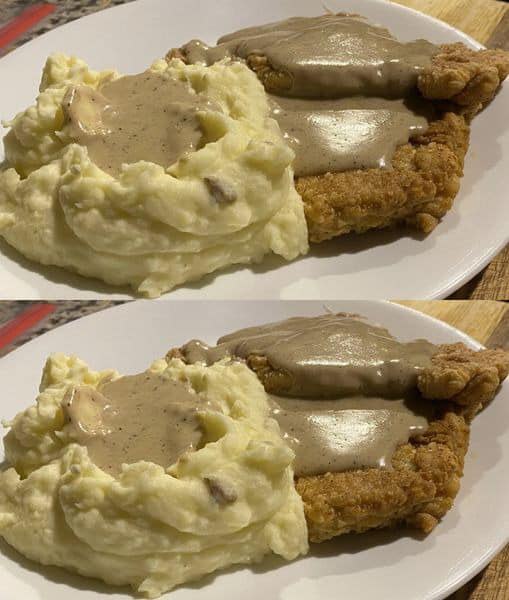Serving: Serve the mashed potatoes warm as a side dish to meats like roast chicken, steak, or turkey. They also pair wonderfully with gravy, vegetables, or even in a shepherd's pie.
Storage: Leftover mashed potatoes can be stored in an airtight container in the fridge for up to 3 days. Reheat gently with a splash of cream or milk to restore their creamy consistency.
Variations:
Garlic Mashed Potatoes: Add roasted garlic or sauté minced garlic in butter before mixing it into the potatoes for a garlicky kick.
Cheesy Mashed Potatoes: Stir in your favorite cheese, such as cheddar, Parmesan, or goat cheese, for a rich and flavorful twist.
Herb-Infused Mashed Potatoes: Mix in fresh herbs like rosemary, thyme, or parsley for added freshness and aroma.
FAQ:
1. Can I use Russet potatoes instead of Yukon Gold? Yes, but Yukon Gold potatoes are recommended for their natural buttery flavor and creamy texture. Russets can be a bit starchy, resulting in a drier mash.
2. Can I make mashed potatoes ahead of time? Yes, you can prepare mashed potatoes ahead of time. To keep them warm, you can place them in a heatproof bowl over a pot of simmering water or in a slow cooker on the "keep warm" setting.
3. What’s the best way to avoid watery mashed potatoes? Steaming is the key to avoiding watery mashed potatoes. Boiling can make the potatoes too soggy and watery, while steaming ensures they retain their structure and moisture without becoming overly wet.
4. Can I make these mashed potatoes dairy-free? Absolutely! You can substitute the butter and cream with plant-based options, such as olive oil and coconut milk or almond milk, for a dairy-free version that’s just as creamy.
